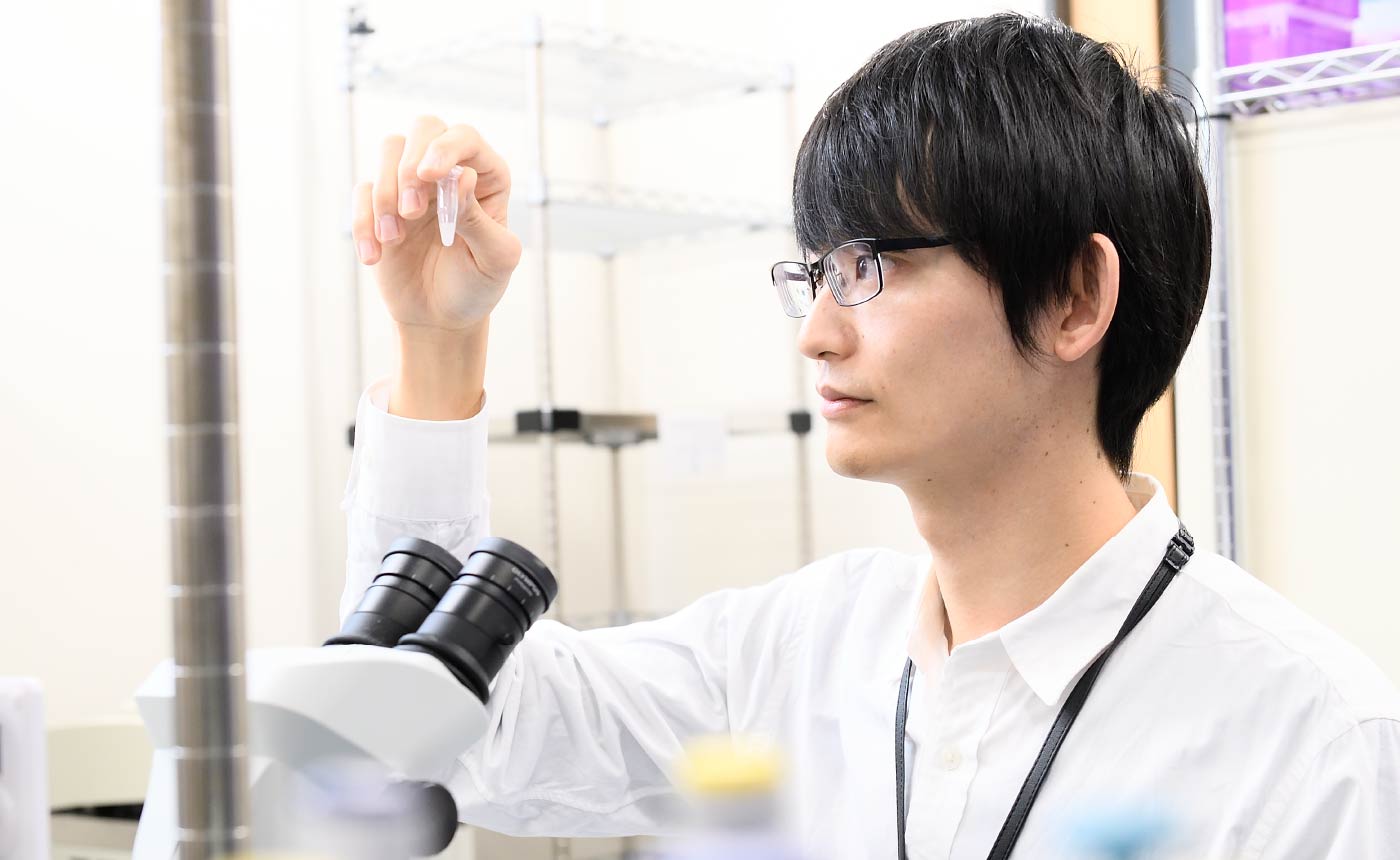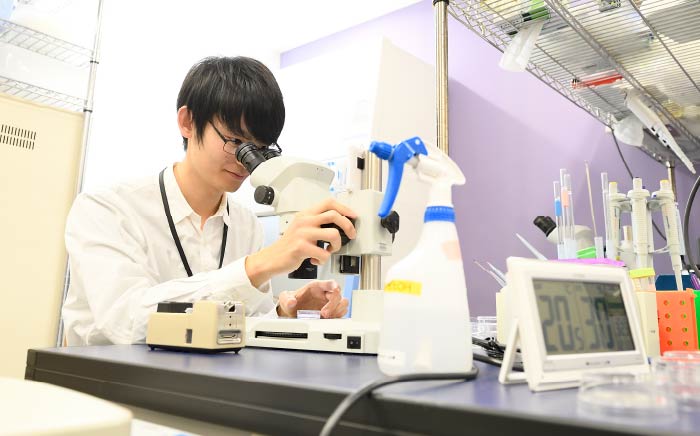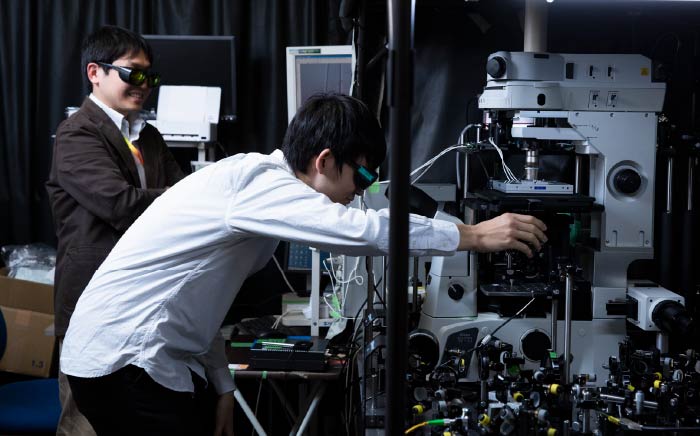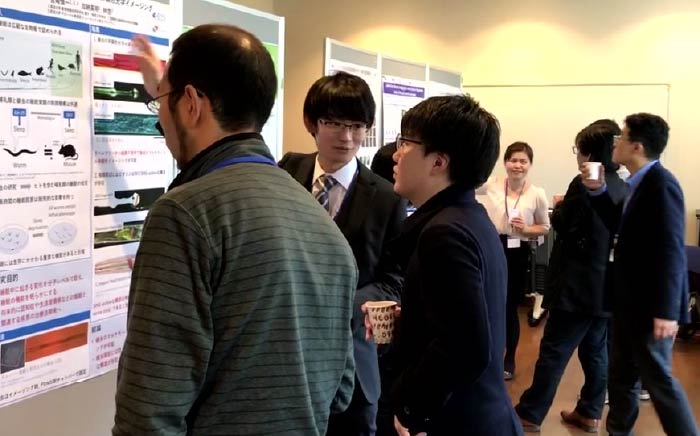- Fields of study:
- Sleep medicine / Nonlinear photonics
- Mentors:
- Dr.Yu Hayashi / Dr.Hideaki Kano

Even if the learned knowledge did not relate to the research at present, it should be useful someday
I got a bachelor’s degree from University of Tsukuba School of Medicine. I worked as a medical doctor before entering this program. My desire for continuing basic research grew, and I decided to enter graduate school. One of the most attractive features of this program is actively promoting fusion research. Recently, fusion research, which creates new things by multiplying two different research fields, is mainstream.
Under Prof. Hayashi, a leading researcher of nematodes, I explore the biological role of sleep using genetics and neuroscience. The second mentor is Prof. Kano of the Graduate School of Science and Technology (Professor of Kyushu University; visiting professor of University of Tsukuba). In Kano Lab, my theme is nonlinear optics applied for microscopes to identify biomolecules by manipulating laser.
In the future, I would like to become a principal investigator. The double mentor system is advantageous for achieving my goal because I can learn a lot from two different researchers is significant.
This program provides us a pleasant environment. Students can concentrate on their research without worrying about daily life because of full financial support. Studying new fields with pleasure is essential for a student who wants to enroll in this program. Since students in this program have to learn many things in a different area, we often run into a wall. Of course, I also frequently have difficulty studying in another research field. However, I often find that new knowledge is closely related to my research later. Now I believe that all of the experience should be useful, even if it seemed not to link to my research.
[Time table of an ordinary day]

Most of the day, I am studying nematode sleep under my mentor, Prof. Hayashi.

I go to the Kano laboratory several times a week for lab meetings and experiments to perform nonlinear optical imaging of nematodes.

Poster presentation at the symposium sponsored by division of living-cells spectroscopy in the Spectroscopical Society of Japan.
